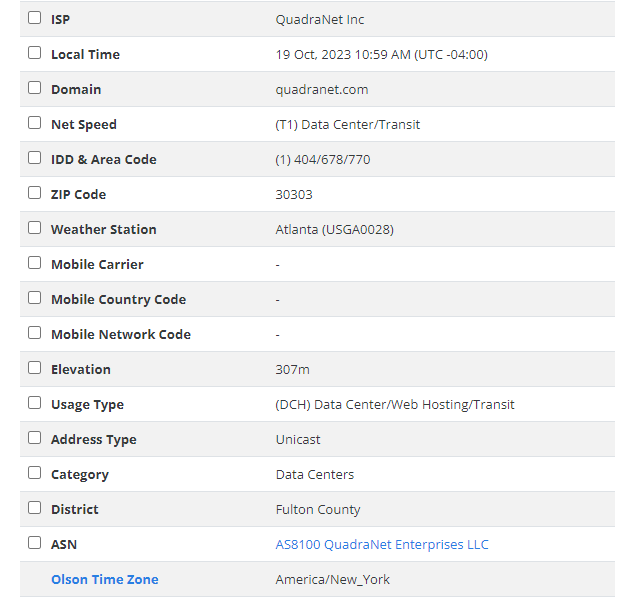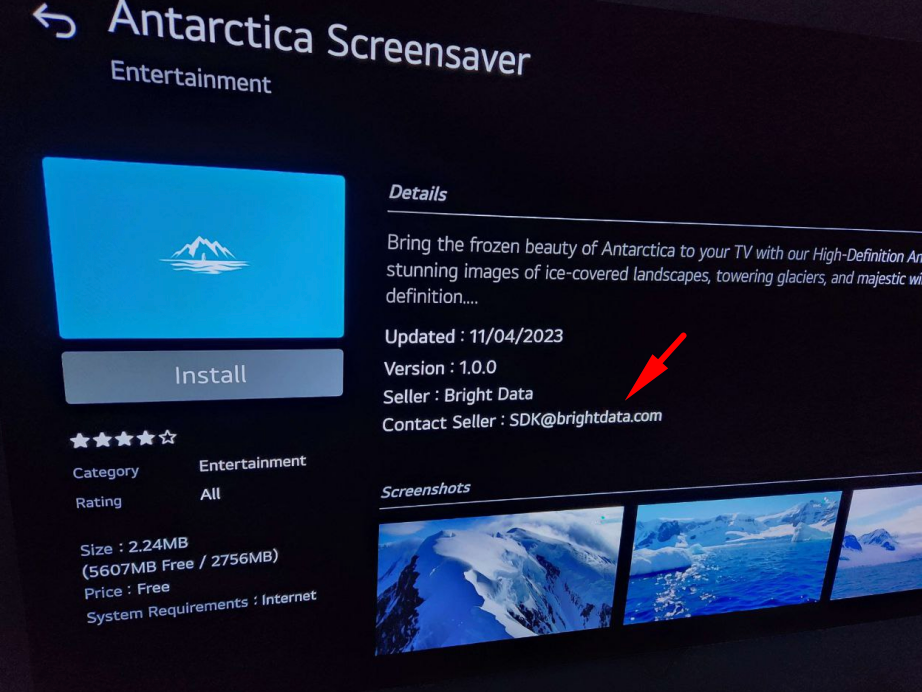The idea of a residential based proxy or VPN is a bit of a strange concept.
Are you telling me somebody is just running a server in their bedroom closet on their home connection and selling proxy/VPN access?
Unlikely.
Especially because if they actually lived there, there’s a potential to be held accountable for actions taken on an IP address linked to their name.
One might assume these residential based proxies and VPNs are done through infected and compromised phones, PCs, TVs, etc., that have VPN/proxy scripts running in the background.
But there are very large and official companies that offer services with residential IP addresses…
So there has to be a legitimate way for businesses to obtain these residential IPs at scale, right?
Turns out there is, and I’m about to share with you how…
But first, we need to discuss why there’s a demand for them:
Why Use a Residential IP Address?
The main reason is that you blend in much better.
There are a few different classifications. Namely, data center, residential, and business.
If your IP address is classified as a data center IP address, websites tend to block you much quicker.
Particularly streaming sites — if you’re on a data center IP address, you have no chance of accessing about any popular streaming service (and a slight chance on a business IP address).
That means on most proxy/VPN IP addresses (unless specifically labeled for streaming or residential use), you won’t be able to access your favorite streaming services.
You can check what your IP is classified as by using sites like IP2Location and beyond, but it’s not an exact science — sometimes the information is wrong.
For example, the VPN I use for work that’s operated through QuadraNet is classified as a data center IP address:

In my case it doesn’t bother me much because it’s a static IP address for work, but for many use cases this IP address would be practically worthless.
You’ll find especially on shared data center IP addresses that you’ll have a hard time simply browsing the internet. CAPTCHAs on every site, simply blocked from others and beyond.
If you’re using a proxy or VPN for a use case like web scraping; it’s almost a necessity to use a residential IP address.
For all other use cases, even browsing the internet, you’ll have a better experience using a residential IP address.
How Are Residential IP Addresses Obtained?
1) IP/bandwidth sharing scripts inserted into apps
The most frequent way to source residential IP addresses is by entering scripts into free apps.
The reality is, nothing in the world is for free. You’d be surprised the terms you agreed to by signing up for that one free app.
For example, BrightData, one of the largest providers of residential IP addresses and a supplier to even Fortune 500 companies does this primarily through their SDK (software development kit).
Even your smart TV isn’t safe from becoming a residential IP address:

Here’s how BrightData explains how they acquire residential IP addresses:
How does Bright Data acquire its Residential IPs?
Bright Data has an SDK (software development kit) that is implemented into applications. Bright SDK provides an attractive alternative to advertisements by providing the app user with the choice to opt-in to Bright Data’s network instead. For every user that opts-in to the Bright Data network, Bright Data pays a monthly fee to the application vendor, who passes that value on to the user by not displaying ads. The Bright SDK provides monetization for the app owner while offering the user a better experience.How does the Bright SDK work?
When a Bright Data partners’ application is downloaded the user can choose to see ads or become a peer in Bright Data’s network. Users choose (opt-in) to be part of the Bright Data Network, and may opt-out at any time. To become a peer, three conditions must be met, the device must be idle (not-in-use), connected to the internet and plugged into a power source (or battery power over 60%). There is no collection of user’s data and as a result, the app now can offer a better user experience. Bright Data’s partners have seen an increase in not only installs but also in user engagementBright Data is not only the world’s largest Residential Network, but it is also 100% opt-in and trusted by Fortune 500 companies across the globe. We are always looking to expand the Bright Data network and are currently interested in working with Windows and Android Applications.
So, yes, technically, their entire process is legal.
Unethical? Sure. Legal? Yes (obviously, varying per legal jurisdiction).
2) Buying IP usage and bandwidth directly
The highest quality residential IP address services won’t be the cheapest, but you’ll receive the best experience through them.
You’ll also be more likely to see static residential IP addresses offered if they’re actually paying the end user directly for IP/bandwidth sharing.
Some modern era approaches to this method of residential IP addresses are cryptocurrency based platforms, like Mysterium:

They don’t pay their users in real hard cold cash, but rather cryptocurrency.
Nonetheless, they do pay their users to share their IP addresses and bandwidth.
3) Compromised systems
The dark truth is that there is some very questionable practices involved in this industry, and sometimes outright illegal activity.
Some of these IP addresses are obtained through straight up compromised systems, and their IP addresses are used entirely without their consent (not even blended into a ToS).
The only way to avoid this is by going for reputable residential IP address providers.
What’s the Best Residential IP Based Proxy and VPN Provider?
I’ve already mentioned BrightData and Mysterium, but I’ll throw Oxylabs into the mix. They’re a high quality residential proxy provider.
Outside of that, we have Changemyip.com over on LowEndTalk that just recently posted a new thread.
Here’s how they describe their residential proxies:
For our Residential Static Proxies services we’re partnered with some of the leading residential networks to ensure top-tier service. Our IP addresses are announced on premium networks like : AT&T, Verizon , Comcast, Spectrum, Cogent Communications, CenturyLink, GTT Communications Inc., NetEnterprise, Sprint, Deutsche Telekom, Trinity Telecom, Segna Technologies, ZyNOX IT Group, ideo Broadcast, Hydra Communications, Telecom Services, Crocker Communications, Orient Express.
Our proxies are working with all apps/browsers that allow proxy setup/connection. Suitable for SEO, Scraping, Data Harvesting and Other Purposes
They further expand on that in the thread stating the following:
Our IPs are sourced from real users who willingly share their bandwidth with our network. By participating in our system, these users allow their IP addresses to be used as part of our proxy pool. This ensures that the IP addresses in our service are genuine residential IPs.
Here’s the full list of services they offer:
- Static IP Datacenter Dedicated HTTP Proxy
- Static IP Datacenter Shared HTTP Proxy
- Static IP Datacenter Dedicated SOCKS5 Proxy
- Static IP Datacenter Shared SOCKS5 Proxy
- Static IP Datacenter Dedicated ShadowSocks
- Static IP Datacenter Wireguard VPN
- Static IP Residential Dedicated HTTP Proxy
- Static IP Residential Dedicated SOCKS5 Proxy
- Static IP Residential Dedicated ShadowSocks
- Static IP Residential Wireguard VPN
- Static IP DNS Proxy
- Rotating Residential Proxies
- Rotating Data-Center Proxies
Not bad…
If you’re interested in checking them out you can click here, or if you’re interested in asking any questions, you can check out their most recent thread here.
Here’s to not getting a CAPTCHA on every new site you visit while using your VPN/proxy.






















4th method: renting directly from an ISP, basically just colocating with them, or having business internet
When it comes to blogging, I typically say that we greatly value your posts. My interest has been piqued by the article in a significant way. Allow me to bookmark your blog so that I can continue examining it and selecting details.